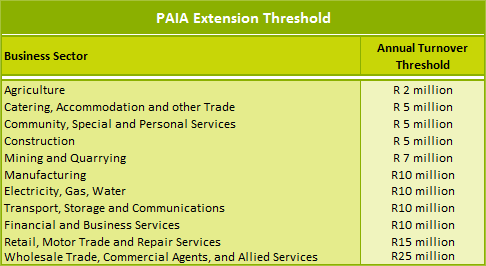
|
|
| |
|
SEPTEMBER 2015
|
Write your will today! Four good reasons to do it now
|
“We used to terrorize our babysitters when I was little, except for my grandfather because he used to read to us from his will” (comic Janine Ditullio)
Whether you are young or old, healthy or ailing, wealthy or not-so-wealthy, married or single – you must have a will.
To Will or not to Will?
Dying “intestate” (i.e. without leaving a valid will) means your loved ones must deal with a whole series of legal and financial risks just when they are least able to cope with any additional trauma.
Only by leaving a valid will can you protect your family properly -
- Their financial security is at risk if you die without a will because then it is the “law of intestate succession” – and not you – that specifies who inherits what. You could be condemning someone vulnerable to a life of hardship and distress – for example you could unwittingly leave your spouse trying to survive on only a “child’s share” of your estate.
- It is the only way you get to choose your executor. You need someone you can trust to wind up your estate with independence, competence and a minimum of delay. Choose well – this is a specialised function carrying significant responsibility.
- Similarly it is in your will that you can nominate a suitable guardian for your minor children. Ensure that their money is properly protected in a testamentary trust (the alternative, which you really don’t want, is for it to languish in the Guardian’s Fund).
- Don’t forget to relieve your family of the burden of deciding how to dispose of your mortal remains – specify in your will whether you want to be cremated or buried.
Who should make a will? And when?
It’s never a happy thought, but we are all going to die sooner or later. And even the youngest and healthiest of us could, as the old saying goes, be “run over by a bus” today, or tomorrow, or next Wednesday. We know death will come for us, we just don’t know when.
None of us can afford to procrastinate – make your will now. Today.
How should you draw your will? Doing it the right way
“It is a never-ending source of amazement that so many people rely on untrained advisors when preparing their wills, one of the most important documents they are ever likely to sign.” (From a 2012 Supreme Court of Appeal judgment)
There is just no substitute for professional advice and assistance here. Your will to be valid must comply with several legal requirements, including strict rules on signature and witnessing.
But beyond that it should also be concise and unambiguous. A sloppily drafted or executed will (and template wills are particularly risky here for the uninformed) may be outright invalid. Even a technically-valid will can be a recipe for disaster if it doesn’t clearly and simply address your particular needs and wishes, risking expensive and distressing litigation, loss of protection for your children, tax inefficiency because of poor estate planning – the list goes on.
Our law reports are replete with bitter and costly family disputes which could have been avoided by better drafting of the disputed wills, so don’t be tempted to take shortcuts; if things go wrong it is your loved ones who will pay the price.
What now? 2 more essentials
So you have your valid will in place, properly drawn and executed. What’s next?
- Safekeeping: Your will should be kept somewhere safe. Tell your family where it is and who you have nominated as executor.
- Review: This is vital – circumstances change, and you should diarise regular reviews of your will to cater for life events like marriage, divorce, deaths, births, retirement etc. Take full advice again – you can only change your will either by making a new one which revokes all previous ones, or with a valid “codicil” (amendment or supplement to an existing will).
|
|
Buying And Selling Property: The Bond Clause Blues, And How To Beat Them
|
|
“Men keep agreements when it is to the advantage of neither to break them” (Solon, Athenian lawgiver c. 638 BC - 559 BC)
Here’s the story of yet another High Court battle over a disputed property sale agreement. A fight over how to interpret the “bond clause” again highlighted how vital it is to clearly express the intentions of both the seller and the buyer in every word of the agreement.
A seller gets cold feet
The relevant facts were these –
- The seller sold a property to the buyer for R1,62m, payable on registration of transfer.
- The bond clause made the sale conditional on the buyer, within 7 days of signature of the sale agreement, “being able to obtain” a loan for the full R1,62m on the security of a mortgage bond.
- Payment had to be secured by a banker’s or other guarantee within a further 7 days.
- The loan was approved within 5 days, the bank issued two draft letters of guarantee for the R1,62m and sent them for approval to the transferring attorneys, who returned them with certain corrections.
- Getting cold feet over the sale for some reason, the seller tried to pull out.
- The buyer responded by asking the Court to declare the sale valid and to order the transfer to proceed.
- One of the seller’s arguments was that “no signed bond approval or confirmation was received”.
- Dismissing this argument, the Court pointed out that, per the actual wording of the bond clause, nothing more was required of the buyer than that it should be “able to obtain” the loan of R1,62m, which it had achieved.
The Court’s decision, and a warning
The Court ordered the seller to proceed with the transfer, rubbing salt in his wounds with a costs order against him.
The bottom line is that if, as seems likely, the seller wanted the comfort of something more from the buyer’s bank than just draft letters of guarantee, he should have worded the bond clause to provide clearly and unambiguously for an actual signed bond approval to be lodged.
It’s once again a warning to both sellers and buyers: Sign nothing before taking proper legal advice!
|
|
Have you lodged your PAIA manual? Final deadline looms!
|
PAIA (the Promotion of Access to Information Act) requires you to prepare, lodge and publish (including on any website you have) an information manual in the prescribed format.
Who must lodge
Every business operation, no matter how small (the definition includes any person or partnership carrying on “any trade, business or profession”, together with any “juristic person”) must comply.
If you are one of the many smaller businesses (see below to check) who benefitted from a last-minute extension of your deadline from 31 August 2005 to 31 December 2011, and then another to 31 December 2015, this is for you -
- Although there could be another last-minute extension (or even perhaps an outright exemption for some businesses), don’t count on it.
- If your business is a small and simply-structured one it really isn’t difficult to get your PAIA manual together, so do it now and avoid the stress of trying to comply at the last minute. It’s important to do it correctly and accurately, so take advice in doubt.
Does this deadline apply to you?
The 31 December 2015 extension applies to most smaller businesses - specifically to any “private body”, including any private company, but not to any non-private company, nor to any private company in any of the business sectors listed below with either -
- 50 or more employees, or
- An annual turnover of or above specific thresholds – see the table below for details.
(If the table above does not display correctly, please see the “online version” – link above the compliments slip)
|
|
Landlords – Know Your Rights In Business Rescue
|
Our business rescue legislation aims to save, wherever possible, any company in financial difficulty from total collapse and liquidation.
So for example the BRP (Business Rescue Practitioner) appointed to run the rescue process has the power to suspend any of the company’s obligations for the duration of the process. Moreover as a creditor you cannot start legal action against the company without a court’s authority (or the BRP’s consent).
Where does that leave you as the landlord if your tenant goes into business rescue?
A recent High Court case illustrates.
The facts: The sorry saga of an ailing nightclub
- A nightclub owned by a CC owed its landlord some R200,000 for arrear rental (grown to R600k by the end of this sorry saga).
- In financial straits, it was put into business rescue and the BRPs told the landlord that they had “suspended” the lease agreement for the duration of the business rescue.
- The landlord demanded payment from the BRPs and, when it wasn’t paid, cancelled the lease and demanded that the CC vacate the premises.
- The BRPs however continued trading on the premises, without paying a cent in rental. They then abandoned the business rescue proceedings as having no prospect of success and applied for the CC’s liquidation.
- The landlord asked the Court for confirmation that the lease had been validly cancelled, and to order the nightclub’s eviction.
The landlord and the law
Finding for the landlord the Court held that –
- Rentals due for the months after the business rescue proceedings commenced could not be claimed.
- However the claim for rentals due before the business rescue proceedings commenced was unaffected by the business rescue and could be claimed.
- The lease was accordingly validly cancelled during business rescue and the eviction order was granted.
That’s good news for landlords generally. It means that commencement of business rescue does not in itself stop you from cancelling the lease.
However …..
As mentioned above, during business rescue you need a court’s authority (or the BRP’s consent) to start any legal action.
Where, as in this particular case, the business rescue has already failed and liquidation is imminent, you are likely to get that authority. If the Court finds that the lease has been validly cancelled it might even decide you don’t need its authority to take the next step and apply for eviction.
But where a successful business rescue is still on the cards the outcome might be different. The court in such a case may for example decide that you do need its authority, and refuse to give it to you because allowing you to proceed with eviction would jeopardise or destroy the business rescue effort.
Each case will be different – take advice on your particular circumstances.
|
|
The September Website: Boost Your Business With Live Video Broadcasting
|
Next time you plan a marketing event (big or small) think about what a boost it will be for your credibility and reach to broadcast it LIVE.
Social Media Examiner’s article “How to Use YouTube Live Streaming to Boost Your Exposure” gives you step-by-step instructions on using Google Plus and YouTube to best effect and at zero cost. There are also paid options with positive reviews – for example, Livestream at https://livestream.com/ and UStream at http://www.ustream.tv/.
Note: Test your local broadband speeds to make sure they are up to the task before you commit to anything!
|
|
Note: Copyright in this publication and its contents vests in DotNews - see copyright notice below.
|
| |
 |
 |
|
|










